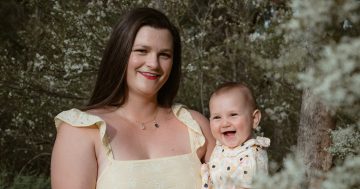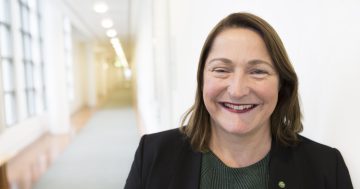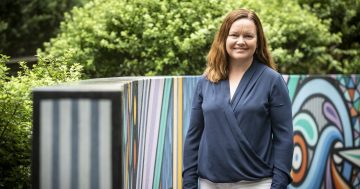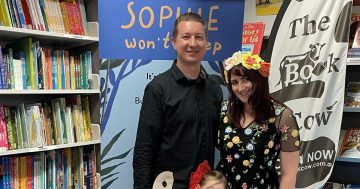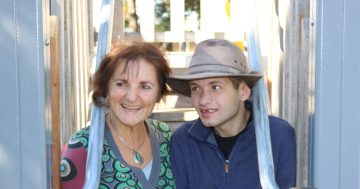
Without care for her youngest, Sarah Hirst is one of many highly skilled and motivated mums in the Illawarra who can’t rejoin the workforce. Photo: Sasha Faint Photography.
Wollongong mum Natalie Morales has had her five-month-old baby on childcare waitlists since she was 12 weeks pregnant.
Ms Morales keeps a spreadsheet of places she’s pursuing and follows up regularly, but she’s still one of countless Illawarra parents facing the financial stress of needing to return to work but without the support to do so.
With three degrees under her belt and a passion for her career in medical research, Bulli mum Sarah Hirst is another one. She’s keen to get back to work but a lack of available daycare for her baby is holding her back.
She and her husband returned to their native Illawarra in May 2022 after a stint in Sydney, and did not anticipate the struggle to find availability for their kids.
Aged four years and 14 months, both children had been on waiting lists since March 2022.
For a time, out of desperation, they’d drive their eldest to the closest daycare with availability – in Picton, a one-hour and 40-minute round-trip, twice a day.
Fortunately, their eldest was recently granted a spot in Wollongong, but Ms Hirst said the lack of availability for her youngest was the sole barrier to her returning to the workforce.
“I have been told that’s commonly how people are getting in these days – get one child in and their siblings will be prioritised. But there’s still no place for my daughter,” she said.
“A lot of mums in the area tell me it’s usually about a two-year wait, so I am not expecting a spot to open up for her until early next year.”
Ms Hirst said more needed to be done to tackle shortages in the Illawarra so primary carers could return to work, and pointed to the mental health considerations.
“With my son I had bad postpartum depression and as a big mitigating factor, I was encouraged to return to work,” she said.
“I think for a lot of women, returning to the workforce allows them to have joyful breaks from their children. I want the chance to miss my daughter, and to get excited to see her at the end of the workday.”
But while important, mental health was not the only concern. The cost-of-living crisis and rising rates are weighing heavily.
“We’re lucky financially in that my husband earns a good wage as a GP. However, if I’m not back at work by the time our fixed interest rate expires, it’s going to be a struggle,” Ms Hirst said.
“And it’s devastating, as someone who is career focused, who wants to contribute financially, not to be able to for lack of care for my child.
“I’m sure there are lots of women in the Illawarra in the same boat.”
There are. A post on Wollongong Mums Facebook page from one disheartened mum asking for advice was flooded with responses.

The lack of availability in Illawarra daycares prevents Natalie Morales from returning to work, and it’s a source of major anxiety. Photo: Supplied.
One came from Ms Morales, who is due to return to work in October. Her five-month-old has been on waitlists since she was 12 weeks pregnant.
“I put him on the waitlist at every centre between Fairy Meadow/Wollongong and Dapto/Kanahooka, thinking I was being prepared,” she said.
“I even put some down in the Sutherland Shire as my sister works at one and it’s where my parents live.”
Despite her work’s flexibility for which two days she can return, and her mum being able to step in one day a week, her October return date looms large.
“I am the primary income earner in my household – we cannot afford to live off my husband’s income and Centrelink payments. But my work paid leave finishes in October and I don’t know what we’re going to do,” she said.
“It creates undue stress when I already have suffered with postpartum anxiety and I just try my best to push it aside. But every time I think about it, I feel sick.”
The problem is not necessarily a shortage of daycares themselves, but qualified educators to staff them, according to Illawarra-based former early childhood educator Carly Heffernan.
She left the formal sector eight years ago to start her own nannying service, and hasn’t looked back.
“I think the problem started 10 years ago as wages were not in line with training needed and responsibilities given to staff. People left, very few have begun the training in the years following because of the known low pay, and now it’s escalated because there are very few adequately trained staff graduating.”
The good news is there is some movement in that space. More than 270 early childhood education and care professionals will this week start a new program that enables them to gain a degree in two years instead of four.
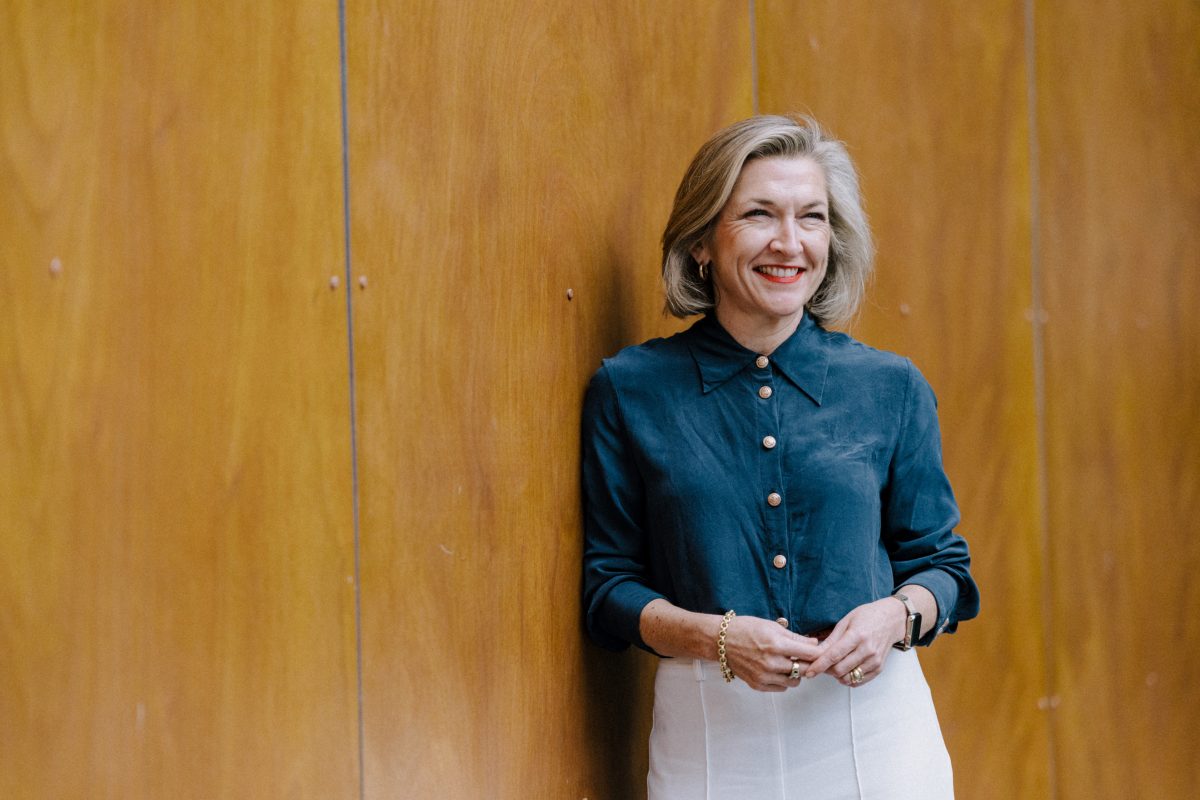
UOW Academic Director of the Early Years Associate Professor Cathrine Neilsen-Hewett says prior-to-school teachers are arguably the most powerful educators. Photo: Michael Gray.
NSW Department of Education partnered with the University of Wollongong (UOW) and the Early Learning and Care Council of Australia (ELACCA) to establish the Bachelor of Education – The Early Years (Accelerated Pathway Program).
It will allow diploma-qualified educators to upskill and receive mentoring to become “prior-to-school educators”, while continuing to work.
It seeks to help meet sector demand for highly skilled teachers in prior-to-school settings as a key commitment to addressing current workforce pressures.
The program has received more than 320 applications from educators and more than 140 expressions of interest from mentors in the four months since the program was announced.
UOW Academic Director of the Early Years Associate Professor Cathrine Neilsen-Hewett said this response not only reflected the need for investment in the sector but also the unique needs of those already working in the sector.
“I would go as far to say these teachers in prior-to-school settings, their potential for impact is even greater than it is in the school context because if we look at brain science, we know children learn faster in the first five years of life than any other time,” she said.
“The research overwhelmingly speaks to the disproportionate influence in those first years on outcomes for children. In other words – these are our most powerful teachers.”


